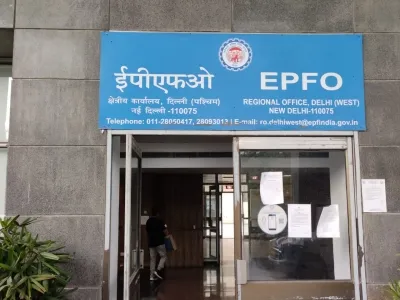What Challenges Are Kabul Residents Facing Due to Slower Internet Speeds?

Synopsis
Key Takeaways
- Kabul faces significant internet challenges due to service disruptions.
- Residents report negative impacts on work and education.
- High-speed internet is crucial for progress in marketing and public services.
- Community leaders are calling for solutions to restore internet access.
- Local businesses are suffering due to internet outages.
Kabul, Sep 21 (NationPress) Numerous residents in Kabul have voiced their frustrations regarding the slowdown in internet speeds and the subsequent challenges they are experiencing since the disruption of fibre optic services across 10 provinces in Afghanistan.
Individuals living in the capital have reported that the diminished internet speed is impacting their professional tasks. Wajid, a worker at a local pharmaceutical firm, mentioned that 90 percent of his responsibilities depend on a stable internet connection. He expressed that the reduction in service has been particularly troublesome, as highlighted by Tolo News.
“We require fast internet because at times, sending a location fails to go through, resulting in numerous issues in the workplace,” he stated.
Many others echoed Wajid’s concerns, explaining that the disruption in internet services has considerably hindered their online education, as well as their personal and professional communications.
Shams raised a critical point, questioning how marketing advancements could be achieved if internet access remains limited. He remarked, “If we had high-speed internet, we could enhance our marketing efforts and contribute more effectively towards the progress of our nation.”
Another local, Saleem Rahini, highlighted the adverse effects on his studies: “As our lessons were conducted through online platforms like slides, WhatsApp, and YouTube, the weakening of the internet has significantly reduced our access to these vital resources.”
Kabul residents expressed their grievances following the suspension of fibre optic services in 10 provinces of Afghanistan—including Balkh, Kandahar, Herat, Helmand, Nangarhar, Laghman, Badakhshan, Takhar, Kunduz, and Baghlan—over the past week, as reported by Tolo News.
The suspension of fibre optic internet across these provinces followed an order from the Taliban.
Social activist Abdul Hadi Qane from Herat stated, “We hope that there will be no restrictions on internet access. Should any measures be necessary, they should be implemented in a manner that minimizes the negative impact on the public.”
Residents in Balkh have also raised concerns, noting that internet disruptions have adversely affected their business operations, educational pursuits, and social engagements. One local remarked, “Cutting off home internet can severely impact every facet of our lives. A significant portion of public services, including ID card issuance, passport applications, and banking services, relies on internet connectivity.”









